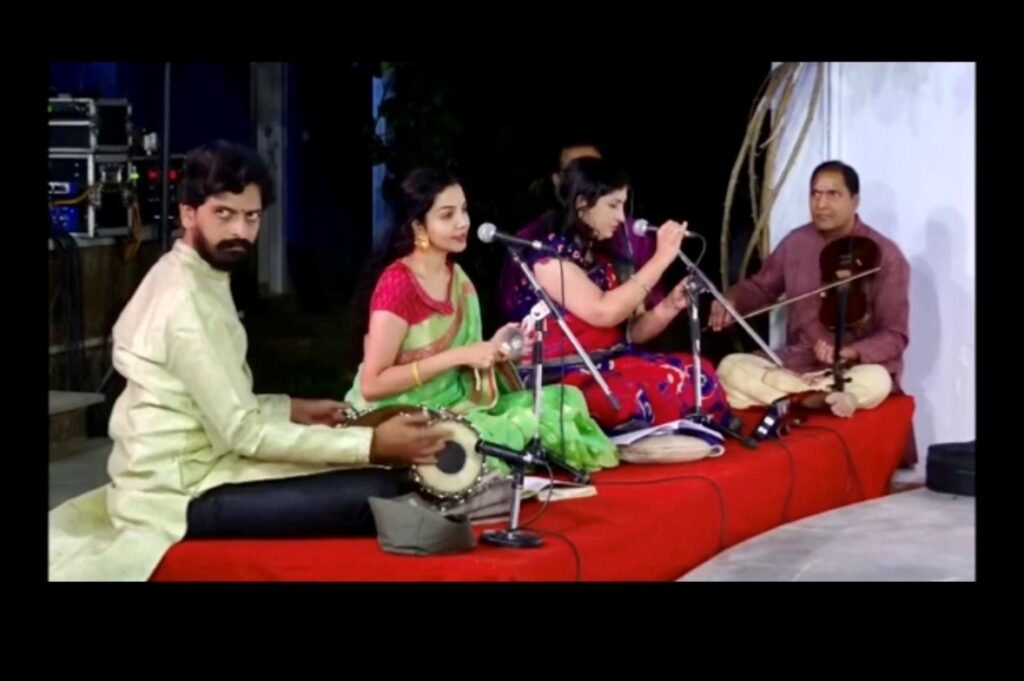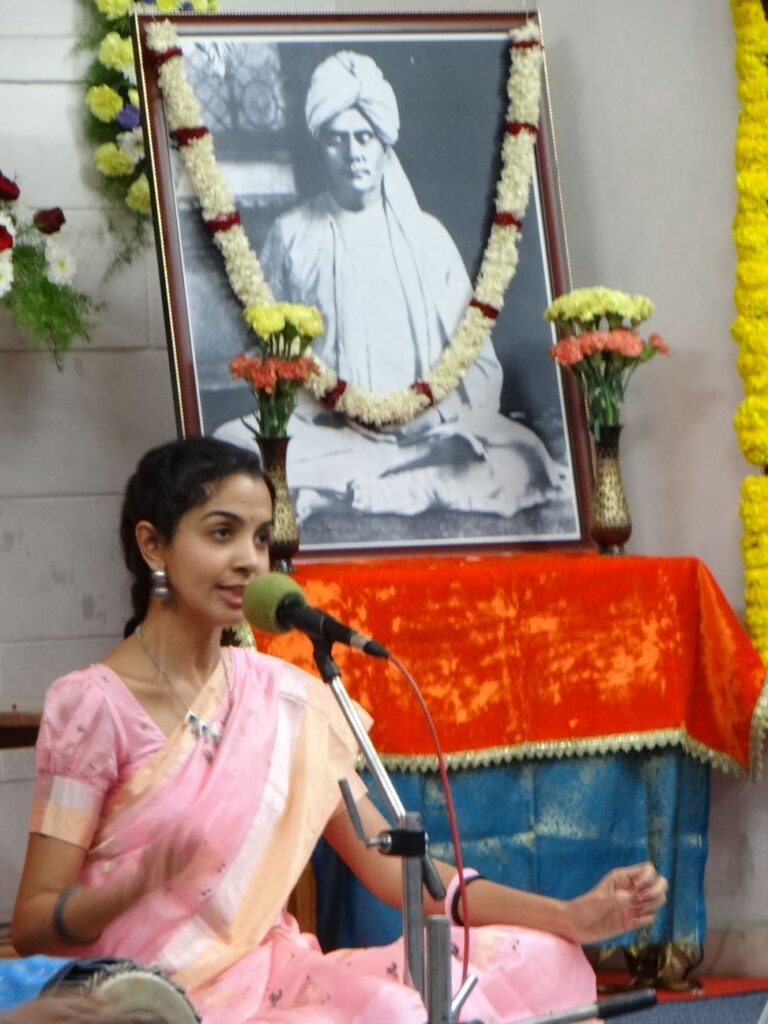Kuchipudi dancer Sindhuja started training in dance and music simultaneously as soon as she crossed seven. Speaking exclusively to Natyahasini, Sindhuja says: “With a few gaps, both forms went pretty much hand-in-hand. However, my dance performances started much quicker. While I used to sing occasionally, kacheris came in much later in my career. I never thought about why I was learning either. They are just an integral part of life.”

Taking a trip down memory lane on her music classes, the Kuchipudi dancer and musician says that she commenced her initial Carnatic music lessons from Smt. Padmaja Garu. “I was a seven-year-old going along with my friends in the colony but the only one who ended up pursuing it seriously. I learnt for a couple of years from her until a few varnams and kritis too. Then I trained from D. Sampath Kumaracharya (younger sibling of the Hyderabad brothers). He was a firm teacher but also indulged me a lot, as they were also family friends! It was with him that I realized there is more to music than just memorizing and singing correctly. The theory was part of the class routine,” she says.

Great Gurus: Sindhuja states that after Guru Sampath moved abroad, she came under the tutelage of Smt. C. V. Subbalakshmi Bhaskar. “It was with Aunty that I understood how vast music is. She is extremely affectionate but a taskmaster. Probing into swaras, ragas, and most importantly the ability to listen to music came because of her. To sum it up, whatever little I sing is thanks to her,” the dancer musician says. She quickly adds that she also had training in light music from R. Viswanath for a brief period. “This taught me to ‘feel’ the words and intonate and modulate my voice,” she says.
On performing as a Carnatic Musician, the dancer singer says: “I performed for a brief period -majorly Carnatic, occasionally light music and movie songs too. Performing is always a challenge, a sweet one at that. Your interactions with fellow musicians- instrumentalists and with your inner self matter. And sometimes it is a surprise as to how the concert/song goes, no matter how much I prepare.”
Unique Experience: When questioned whether she likes performing as a singer or as a dancer, Sindhuja admits that it is a tough question. “Unfortunately, I had to take a break from singing due to health issues before I could explore and enjoy myself as a performer (in the katcheri format). I have always been a dance performer; perhaps that comes more naturally to me. There was a time when I sang a composition while dancing on stage, that was a unique experience and something I cherish. Just to add, though it may sound poetical, the best feeling is when I simply sing for myself when I feel like it, when it rains… when I am happy or low…,” she says with grace.

Dancers Must Learn Music: Whether every dancer should learn music, the dancer singer says, the dancers must learn at least the basics. “To begin with, it will give them a better understanding of the music – the rhythmic patterns, the speeds, the nuances, the lyric, amongst many others. Those are the things that would make a difference in dance. The music flows through the body! Once they reach the professional level, music knowledge helps in all aspects of choreography, communicating with the musicians in the orchestra, and ultimately being in command of the dance. In fact, I teach all of this and more on Kuchipudi music to masters’ students at my workplace, University of Silicon Andhra. That gives a picture of how crucial music is for dance,” she states.
Sindhuja also mentions that apart from performing and singing, she also accompanies other artists on nattuvangam and sometimes on vocals. “This has certainly given me an edge, and I attribute it to my music training. Additionally, I also compose music for small songs/padyams and sing them as well. These compositions have been performed by myself and students as well. This gives me a sort of independence as an artist,” she admits.
Eight Students: The dancer – musician has eight students training in music under her and she takes students to exams conducted by various universities. “All are taught fundamental theoretical aspects as part of the regular class and those appearing for exams are coached further, Also, they are constantly encouraged to participate in competitions and events to hone their skills and listen to others,” she says.
The Kuchipudi exponent says she can’t see how dance and music are different. “Everything I do today or who I am now is because of my grounding in these dual forms. I recently started performing as a musician again, albeit taking one/two compositions at a time. Expecting to go full-fledged soon,” she says before signing off.
